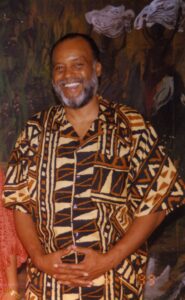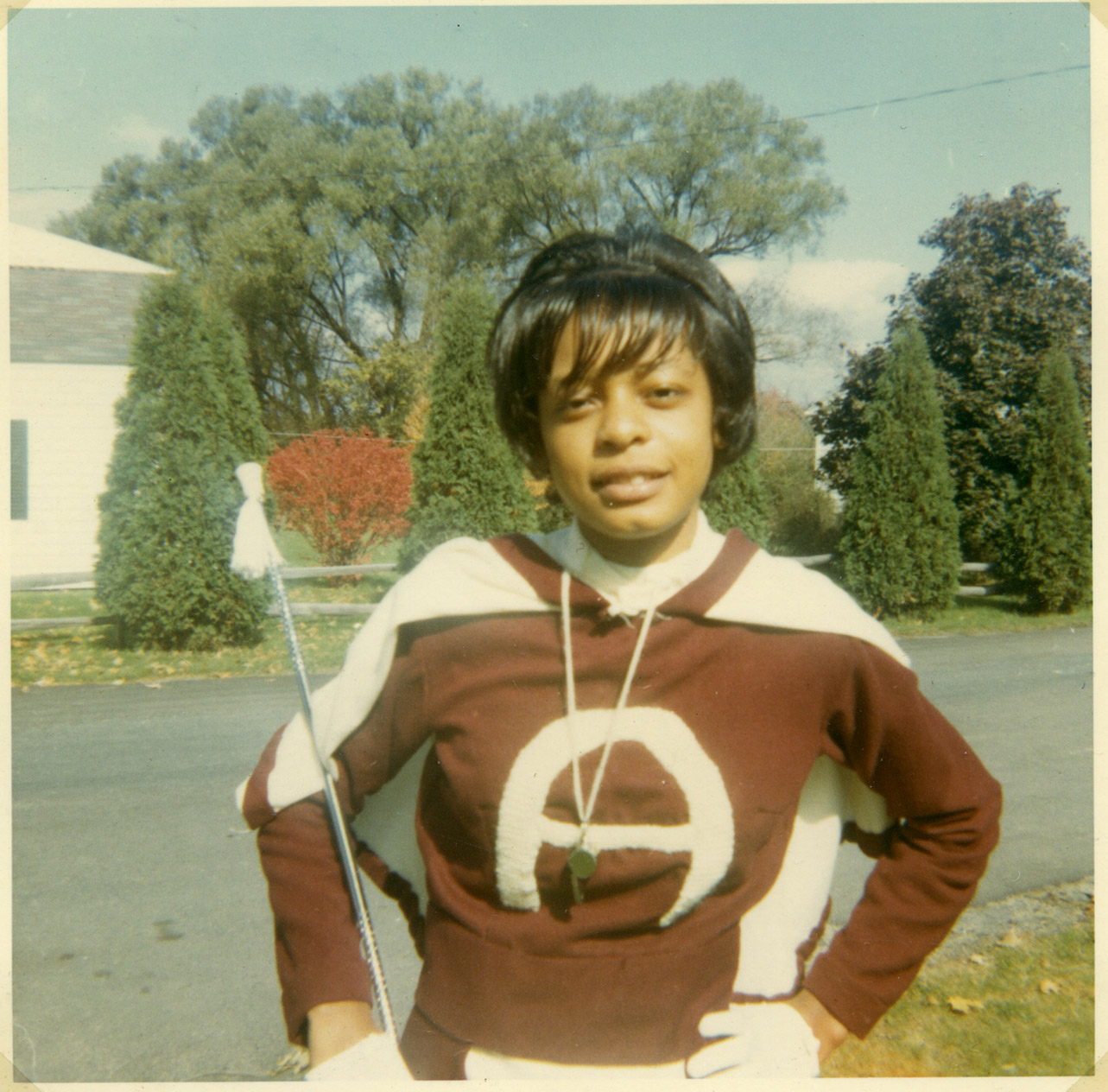 Everett Hoagland at the PAWA World Poetry Conference in Accra, Ghana, 1999.
Everett Hoagland at the PAWA World Poetry Conference in Accra, Ghana, 1999.
Poet Everett Hoagland was born and raised in Philadelphia and attended and graduated from Lincoln University, and later Brown University on a full fellowship for pursuing his Masters of Arts. Hoagland’s poetry came of age during the civil rights struggles of the 1960s and the Black Arts Movement, and is often powerfully political. Driven by the history, music, rhythms, and both collective and individual stories from African and African American culture and experiences, Hoagland is one of the most significant African American poets of the late twentieth century. His second chapbook, Black Velvet, was published by the pioneering Broadside Press in 1970, and he has remained widely published and anthologized through to the present day, including his most recent anthology addition, a poem about the Black Lives Matter movement. In addition to his writing, Hoagland has given readings across the nation and globe, and also served as a teacher and mentor to many, primarily in his position as a Professor of English at the University of Massachusetts Dartmouth for over thirty years. He has won numerous awards and honors, including a 2023 American Book Award, the Award for Outstanding Achievement in Poetry from the American Literature Association’s Society for African American Literature and Culture, the Gwendolyn Brooks Award for Fiction, two state-wide poetry competitions for Massachusetts Artists Foundation fellowships, the Distinguished Service to University award from UMass Dartmouth, two MA Local Cultural Council grants for book publications, ForeWord Magazine’s Best Poetry Book award, and the 2015 Langston Hughes Society Award. Hoagland also served, from 1994 to 1998, as the inaugural poet laureate of his adopted hometown of New Bedford, MA.
The Everett Hoagland Papers include manuscript materials and over twenty books documenting Hoagland’s decades-long career as a poet and writer on racial politics and African American experiences. They consist of photographs; performance and presentation programs, reviews, and recordings; interviews and articles; and unpublished and published writings including copies of Hoagland’s column in the New Bedford The Standard Times, a draft of his Master’s thesis, short fiction stories, a scrapbook of unpublished poetry, and poetry in magazines, periodicals, Hoagland’s authored poetry books, and numerous anthologies.
Gift of Everett Hoagland, 2016



